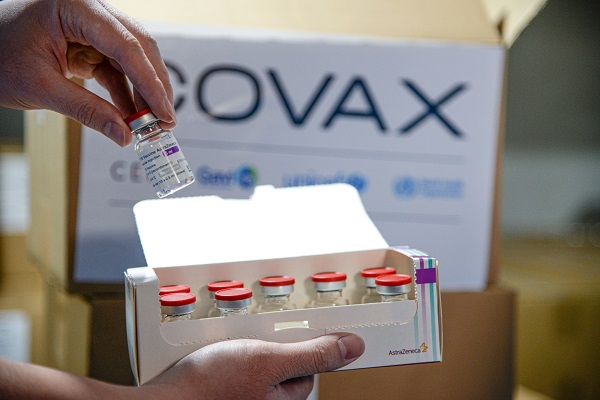
The African Health Budget Network (AHBN) has advocated for the effective mobilisation of COVIID-19 vaccines for improved coverage on the continent.
The vaccines and essential drugs associate, AHBN, Pharm Khadija Bobboyi, made the call in Abuja during a dialogue meeting with themed “Understanding COVID-19 Vaccines Procurement and Delivery Mechanisms for Africa”, with African civil society groups, the media and advocates.
Recall that as part of UNICEF’s work to supply COVID-19 vaccines to member nations of the African Union to ensure widespread access to COVID-19 vaccines across Africa, the African Union launched the African Vaccine Acquisition Trust (AVAT).
The trust aims to secure vaccine doses to complement initiatives such as COVAX and attain a target immunisation of 60 per cent of Africa’s population.
Partners in the initiative include the African Export-Import Bank (Afreximbank), the Africa Centre for Disease Control and Prevention (Africa CDC) and the World Bank.
UNICEF will procure and deliver COVID-19 vaccines on behalf of AVAT to the AU member states, with the additional opportunity to provide supplemental logistics and related services for countries that request it.
The initiative complements the COVAX facility’s aim of ensuring rapid and equitable access to COVID-19 vaccines worldwide.
In July 2021, UNICEF signed the first operational framework agreement to supply COVID-19 vaccine doses for all 55 member states of the AU. Multiple vaccines are anticipated to become part of the portfolio.
As the largest single vaccine buyer in the world, UNICEF procures and delivers more than 2 billion doses of vaccines annually for routine immunisation and outbreak response on behalf of more than 100 countries.
UNICEF is also the main procurement partner of Gavi, the vaccine alliance and has helped reach more than 760 million children with life-saving vaccines over the last 20 years, preventing more than 13 million deaths.
According to Bobboyi, donations from COVAX and AVAT to African countries must be made in a way that allows countries to effectively mobilise domestic resources in support of rollout vaccination and enables long-term planning to increase coverage rates on the continent.
“International community, particularly donors and manufacturers should commit to this effort by adhering to the following standards mentioned below; quantity and predictability of COVID-19 vaccines, earmarking, early notice, response times and ancillaries.
“Minimum of 10 weeks shelf-life when they arrive in-country. Once received, the frozen vaccine can be stored at -90°C to -60°C or from 2°C to 8°C.
“Unopened vials can be stored and transported at 2°C to 8°C for a total of 10 weeks within the 12-month shelf-life,” she said.
Bobboyi pointed out that the Issues related to COVID-19 vaccines procurement and delivery for Africa were usually the affairs of the big international and regional donors/partners, affected country leaders and intergovernmental bodies.
She said that the African CSOs and the populace hardly know or understand the procurement and delivery mechanisms.
“There is a paucity of information, weak transparent processes which make it difficult to hold governments and their donors to account.
“This dialogue is an attempt to begin to change the narrative and empower African CSOs, media and the populace with information and promote greater and meaningful participation in the affairs of Africa and COVID-19,” she explained.
She informed on various global and regional procurement and delivery mechanisms for COVID-19 on the continent.
Bobboyi stressed that there was a need for improvement in transparency and accountability of procurement and delivery mechanisms for COVID-19 on the continent.
She called for African CSOs, media and advocates to participate in COVID-19-related issues on the continent and urged them to deliberate on recommendations to deepen their participation.
Meanwhile, the chair of the National Advocates for Health, Hon. Muhammad Usman, also called on African CSOs, media and advocates to ensure the widespread acceptance of COVID-19 vaccines, which he said is crucial for achieving sufficient immunisation coverage to end the global pandemic.
Usman said that a safe and effective vaccine is a critical tool to control the pandemic.
According to him, the effective and equitable distribution of COVID-19 vaccines is a key policy priority and ensuring acceptance is just as important. “Trust in vaccines, as well as the institutions that administer them, are key determinants of the success of any vaccination campaign on the continent.”

